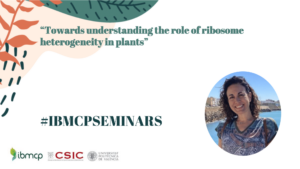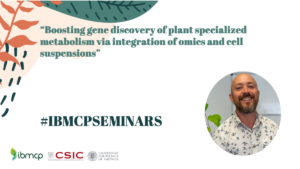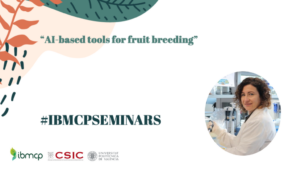“Small peptides, a game-changing strategy for synthetic biology”:
Peptide-based drugs have gained a wide range of applications in biotechnology, making necessary to explore new routes that go beyond traditional peptide identification strategies. Here we describe the construction of a combinatorial genetic-based library [8x(NNK)] able to encode millions of different cyclic peptides, at once. The library (CYCLIC) can be screened by using the GAL4-based yeast two-hybrid assay, which enables to detect protein-peptide interactions in vivo. Cyclic peptides show higher stability and permeability of biological membranes as well as higher affinity for the protein target, making them preferable to the linear counterparts. The effectiveness of the CYCLIC-based technology will be described together with some examples of its applications in plant biotechnology

Friday April 12th 12:30h. Conference Hall, 3rd floor, IBMCP – Dr. Catharina Merchante
Don’t miss our upcoming seminar on Friday, April 12th at 12:30 p.m. in the Conference Hall, 3rd floor, IBMCP! We are pleased to present Dr.




